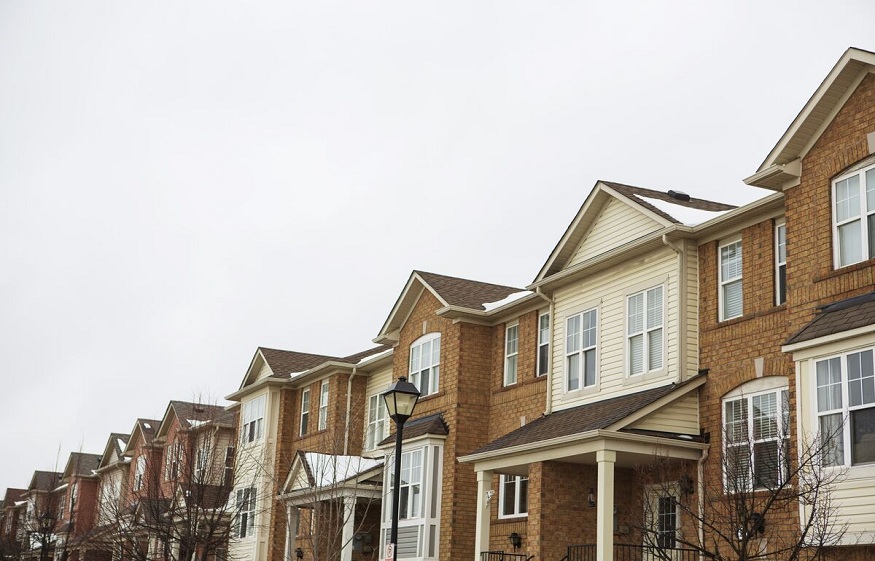Investing in commercial real estate in Canada can offer significant benefits, including potential for capital appreciation, passive income generation, and diversification of one’s investment portfolio. However, purchasing commercial properties often requires substantial capital, making commercial mortgages a critical aspect of the acquisition process. In this article, we will discuss everything you should know about commercial mortgages in Canada, providing a comprehensive guide for investors looking to finance their commercial real estate ventures.
What is a Commercial Mortgage?
A commercial mortgage is a type of loan specifically designed to finance the acquisition, development, or refinancing of commercial properties. These properties can include office buildings, retail centers, industrial facilities, multi-family residential properties, and mixed-use developments. Commercial mortgages differ from residential mortgages in various aspects, including the underwriting process, loan terms, interest rates, and repayment structures.
Key Players in the Canadian Commercial Mortgage Market
Several types of lenders offer commercial mortgages in Canada, including:
#1 Traditional Banks: Major banks and financial institutions, such as the Royal Bank of Canada, TD Bank, and Bank of Montreal, provide commercial mortgage financing. These lenders typically offer competitive interest rates and longer repayment terms but may have more stringent lending criteria.
#2 Credit Unions and Co-operative Banks: Member-owned financial institutions can offer commercial mortgages with competitive interest rates and personalized customer service. These lenders may also have more flexible lending criteria compared to traditional banks.
#3 Canada Mortgage and Housing Corporation (CMHC): The federal agency offers mortgage loan insurance for commercial real estate financing, enabling investors to access more favorable loan terms, such as lower interest rates and higher loan-to-value ratios.
#4 Private Lenders and Mortgage Investment Corporations (MICs): These lenders provide alternative financing options for investors who may not qualify for traditional bank loans or require faster funding. Private lenders and MICs offer short-term, asset-based loans primarily underwritten based on the property’s value and potential income.
Underwriting Process for Commercial Mortgages
The underwriting process for commercial mortgages involves assessing the creditworthiness of the borrower, the financial performance of the property, and the overall market conditions. Key factors considered during the underwriting process include:
#1 Borrower’s Credit History: Lenders assess the borrower’s credit history to determine their likelihood of repaying the loan. A strong credit history can improve the borrower’s chances of securing favorable loan terms.
#2 Debt Service Coverage Ratio (DSCR): This ratio measures the property’s net operating income relative to its debt service obligations. Lenders typically require a DSCR of 1 or higher, indicating that the property achieves an ample amount of income to cover its debt payments.
#3 Loan-to-Value (LTV) Ratio: The LTV ratio compares the loan amount to the property’s appraised value. Lenders generally offer commercial mortgages with LTV ratios between 65% and 75%, requiring borrowers to contribute a substantial down payment.
#4 Property Condition and Location: Lenders evaluate the property’s physical condition and location, as these factors can impact the property’s value and income potential. Properties in prime locations and in good condition are generally more attractive to lenders.
Interest Rates and Loan Terms
Interest rates for commercial mortgages in Canada can vary depending on factors such as the lender, the borrower’s creditworthiness, and market conditions. Commercial mortgage interest rates are typically higher than residential mortgage rates, reflecting the higher risk associated with commercial properties.
Commercial mortgage terms can range from short-term (1-3 years) to long-term (5-25 years). Short-term loans may have lower interest rates but require a balloon payment at the end of the term, while long-term loans may have higher interest rates but offer the stability of consistent monthly payments.
Repayment Structures
Commercial mortgages can have various repayment structures, including:
#1 Amortizing Loans: In an amortizing loan, the borrower makes regular monthly payments comprising both principal and interest, with the loan balance gradually decreasing over time. This repayment structure is common for long-term commercial mortgages and provides the borrower with predictable monthly payments.
#2 Interest-Only Loans: With an interest-only loan, the borrower pays only the interest portion of the loan for a specified period, typically during the initial years of the loan term. After the interest-only period ends, the loan converts to an amortizing loan, and the borrower begins making principal and interest payments. Interest-only loans can offer lower initial monthly payments, but the borrower may face higher payments once the loan begins to amortize.
#3 Balloon Loans: Balloon loans require the borrower to make smaller monthly payments during the loan term, with a large lump-sum payment (the “balloon payment”) due at the end of the term. Balloon loans are often used for short-term financing needs and can offer lower monthly payments during the loan term. However, the borrower must be prepared to either pay off the balloon payment or refinance the loan before the balloon payment comes due.
Prepayment Penalties
Some commercial mortgages may include prepayment penalties, which are fees charged by the lender if the borrower pays off the loan before the end of the term. Prepayment penalties are designed to protect the lender’s return on investment by ensuring a certain level of interest income. It is essential for borrowers to carefully review their loan agreements and understand any prepayment penalties associated with their commercial mortgage.
Closing Costs and Fees
Closing costs and fees associated with commercial mortgages can include origination fees, appraisal fees, environmental assessment fees, legal fees, and title insurance fees. These costs can vary depending on the lender, the property, and the complexity of the transaction. Borrowers should carefully review the closing costs and fees associated with their commercial mortgage and factor them into their overall investment analysis.
Conclusion
Understanding the intricacies of commercial mortgages is crucial for investors looking to finance their commercial real estate ventures in Canada. By familiarizing themselves with the key players in the market, the underwriting process, interest rates, loan terms, and repayment structures, investors can make informed decisions that align with their investment objectives and risk tolerance. As with any investment, it is essential to conduct thorough due diligence and consult with experienced professionals to ensure a successful commercial real estate acquisition.
FRENCH TAGS
-
- Les propriétés peuvent inclure des immeubles de bureaux, des centrescommerciaux, des installations industrielles
- Entreprises immobilières commerciales au Canada

